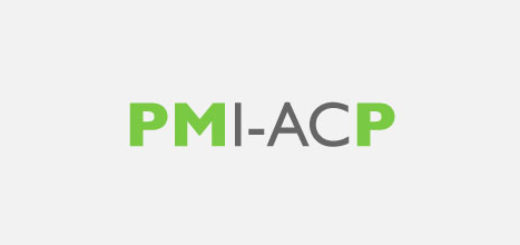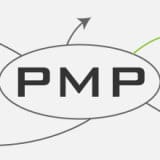PMP Exam Brain Dump of Edward Chung
Free download of my PMP Exam Brain Dump which contains the most important formulas, facts and concepts to be remembered for the PMP Exam

Important Update: Brain Dump is not allowed during the tutorial before the PMP Exam now. Aspirants would however need to make use of the 4-hour exam time to do the brain dump if needed.
If you are not familiar with concept of “Brain Dump”, you may refer to this article on brain dump for the PMP Exam. To put it concisely:
A brain dump is a technique employed by many Aspirants to help them memorise important facts, concepts, formulas, etc. for the PMP Exam.
Article Highlights
Edward Chung’s Brain Dump
Below is a collection of the formulas, facts and concepts included in my brain dump at the time of writing my PMP Exam. It is highly advisable for Aspirants to modify the contents to suit their own needs.
- PMP Calculation Formulas
- Earned Value Management
- CV = EV – AC
- SV = EV – PV
- CPI = EV / AC
- SPI = EV / PV
- EAC = BAC / CPI
- EAC = AC + BAC – EV
- EAC = AC + Bottom-up ETC
- EAC = AC + (BAC – EV) / (CPI * SPI)
- VAC = BAC – EAC
- TCPI = (BAC – EV) / (BAC – AC)
- Communication Channels C = n * (n – 1) / 2
- Total Float = LS – ES = LF – EF
- Standard Deviation = (P – O) / 6
- Expected Time = (P + 4M + O) / 6
- Earned Value Management
- Organization Types: Functional, Matrix (Weak, Balanced, Strong), Projectized
- RACI: Reponsible, Accountable, Consult, Inform
- Activity Dependency Relationship
- Finish to Start
- Start to Start
- Finish to Finish
- Start to Finish
- Normal Distribution
- 68% within 1 standard deviation
- 95% within 2 standard deviation
- 99.73% within 3 standard deviation
- 99.999966% within 4 standard deviation
- Crashing vs Fast Tracking
- Crashing — save time by adding extra resources to carry out the tasks
- Fast Tracking — save time by performing activities in parallel
- Quality Management Philosophies
- Total Quality Management (TQM) — qaulity is integrated into the whole process
- Kaizen — continually carry out small improvements to improve quality over time
- Deming cycle — “Plan-Do-Check-Act” (PDCA) cycle
- Kanban — a pull-based system for management that employing just in time (JIT) principles
- Crosby — the principle of “doing it right the first time” (DIRFT).
- Quality vs Grade
- Quality
- Grade
- Quality Assurance vs Quality Control
- Quality Assurance — focuses on project processes
- Quality Control — focuses on project deliverables
- Cost of Confromance = Prevention Costs + Appraisal Costs
- Cost of Non-conformance = Internal Failure Costs (Rework & Scrap) + External Failure Costs (Warranty, Recall & Goodwill)
- 7 Basic Quality Tools
- Control chart
- Cause and effect (Ishikawa or Fishbone) diagram
- Flow chart
- Histogram
- Pareto diagram (based on 80-20 rule)
- Scatter diagram
- Check sheet
- Team Formation Stages
- Forming > Stroming > Norming > Performing > Adjourning
- Organizational Theories
- Maslow’s hierarchy — Physiological, Safety, Social, Esteem, Self-Actualization
- Herzberg’s theory — Hygiene factors & Motivating agents
- Theory X concludes the average workforce is more efficient under “hands-on” approach to management
- Theory Y believes that employees are self-motivated
- Theory Z (japanese) increases loyalty by providing job for life with focus on well-being of employee
- Conflict Resolution Methods
- collaborate/problem solve[confrontation of problem] (best)
- compromise/reconcile (give-and-take, temporary/partially resolve)
- force/direct (worst/short-lived)
- smooth/accommodate (emphasis common grounds and avoid/touch lightly the disagreements for harmony/relationship)
- withdraw/avoid (other leads to lose-lose)
- Sources of Conflict
- schedule, project priority, resources, technical opinions, administrative overhead (too much administration work), cost, personality
- Work Performance Data vs Work Performance Info vs Work Performance Report
- Work Performance Data – raw data collected
- Work Performance Info – analyzed in context and integrated data, e.g. some forecasts
- Work Performance Reports – work performance information compiled in report format
- Types of Reserves
- Contingency Reserves — for “known unknowns”
- Management Reserves — for “unknown unknowns”
- Risk Strategies
- Threats — Avoid, Accept, Transfer, Mitigate
- Opportunities — Accept, Exploit, Enhance, Share
- Types of Contracts
- Cost Reimbursable — risk on buyer
- Time and Material (T&M) — risk on buyer
- Fixed Price — risk on seller
- PMP Abbreviations
- CCB — Change Control Board
- FEMA — Failure Mode and Effect Analysis
- IFB — Invitation for Bid
- LOE — Level of Effort
- OBS — Organizational Breakdown Structure
- PDM — Precedence Diagramming Method
- QFD — Quality Function Deployment
- RAM — Responsibility Assignment Matrix
- RBS — Risk Breakdown Structure
- RFI — Request for Information
- RFP — Request for Proposal
- RFQ — Request for Quotation
- SOW — Statement of Work
- SWOT — Strengths, Weaknesses, Opportunities and Threats
- WBS — Work Breakdown Structure
Conclusion
Since everyone will have different knowledge gaps they would like to remember and “dump” for the PMP Exam, the best (and the most important) tip for Brain Dump is to create your own brain dump. You may refer to my brain dump above and modify it to suit your particular needs.
Wish you PMP success!
Most Popular PMP Certification Exam Articles
- My Exam Prep Tips and Free Resources (I got 4P and 1 MP)
- How to Get 35 Contact Hours Fast and Easy?
- Detailed Comparision of online PMP Courses
- Over 1000+ FREE Quality Mock Exam / Practice Questions
- A FREE Guide to Formulas and Calculation (with explanation and sample questions)
- 47 Commonly Confused Terms with detailed explanation




 Hi, my name is Edward Chung, PMP, PMI-ACP®, ITIL® Foundation. Like most of us, I am a working professional pursuing career advancements through Certifications. As I am having a full-time job and a family with 3 kids, I need to pursue professional certifications in the most effective way (i.e. with the least amount of time). I share my exam tips here in the hope of helping fellow Certification aspirants!
Hi, my name is Edward Chung, PMP, PMI-ACP®, ITIL® Foundation. Like most of us, I am a working professional pursuing career advancements through Certifications. As I am having a full-time job and a family with 3 kids, I need to pursue professional certifications in the most effective way (i.e. with the least amount of time). I share my exam tips here in the hope of helping fellow Certification aspirants!






Normal Distribution
68% within 1 standard deviation
95% within 2 standard deviation
99.73% within 3 standard deviation
99.999966% within 4 standard deviation
is 99.99966% within 6 Standard Deviation ?
Hello Edward, is your Brain Dump based on the PMBOK 6th edition?
Hi Shannan, It was actually based on 5th edition of PMBOK Guide. But I would say this is mostly relevant for the current PMP Exam.
Wish you PMP success!
Do you happen to know if Mulcahy’s PMP exam prep book is current enough to use when prepping for the new version of the test?
Hi Vanessa,
It is highly advisable to wait for the publication of the updated version of Rita’s PMP book as there are some major updates in the terminology of the PMBOK Guide. You wouldn’t want to confuse the terms.
Wish you PMP success!
Edward, truly an inspiring site. Thank you for providing this valuable information!
This became my favourite site all of a sudden, Thank you Edward!
but one thing, at the PMP abbreviations , its RAM not FAM
also quality managment gurus missing Crosby, really important some questions were about it.
Thanks for pointing out the typo and omissions!
Hi Edward,
You have done a superb work, the stuff you have presented here is very helpful.
Thank you very much for your efforts.
Kind regards, Usman Qureshi – Lahore, Pakistan
Oh, really thanks a lot for your compliment. This is only my way to contribute back to the project management community from which I have gained much support during my PMP exam prep.
Wish you success!